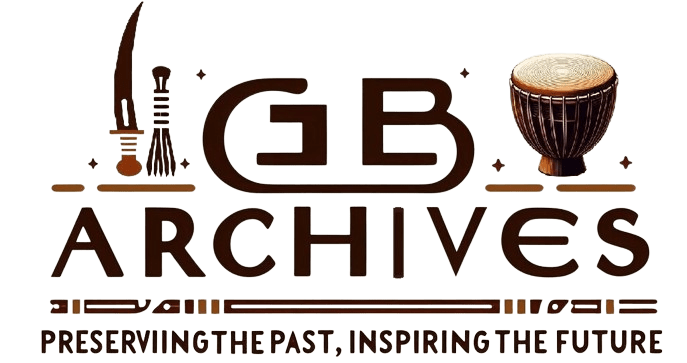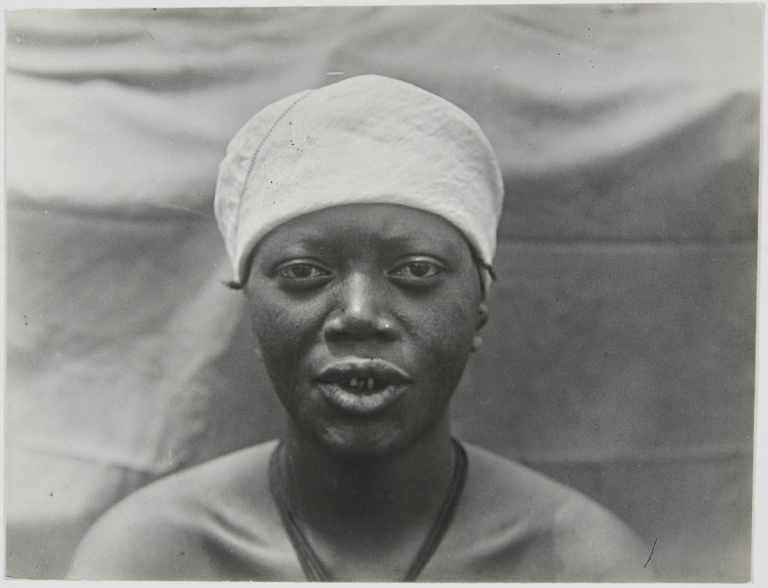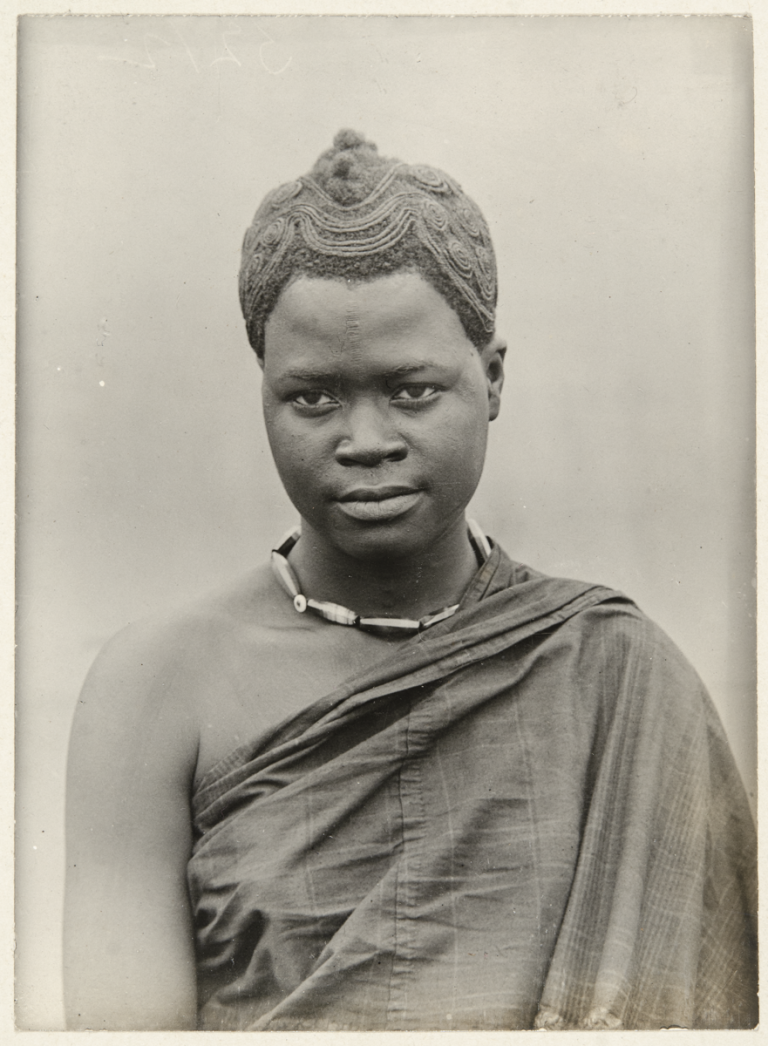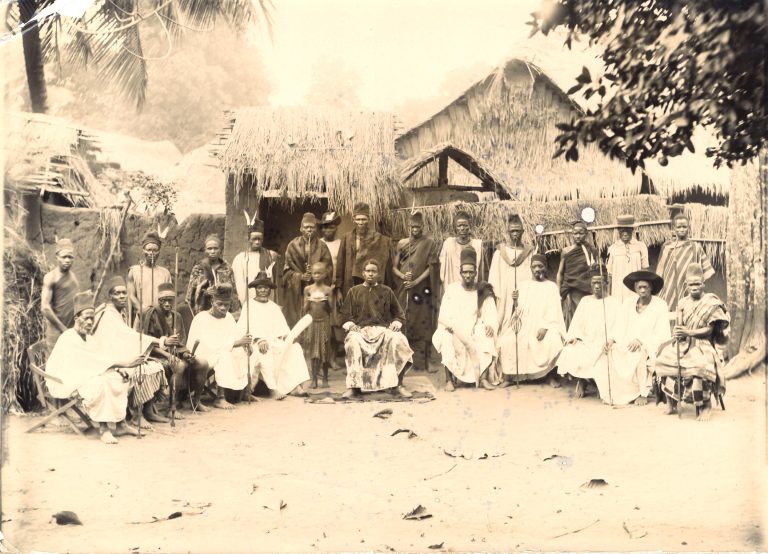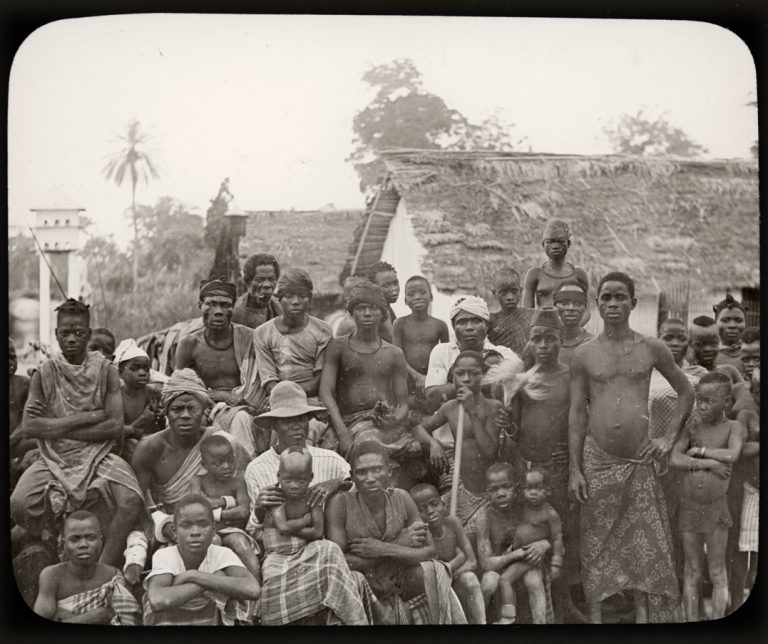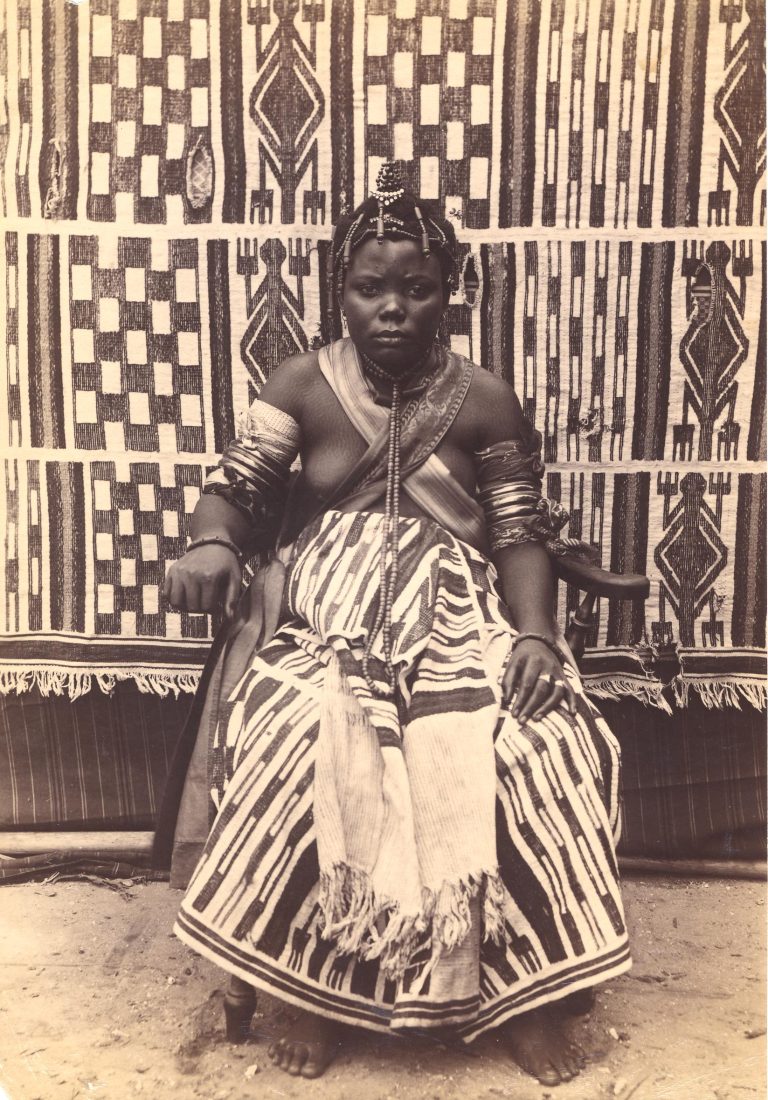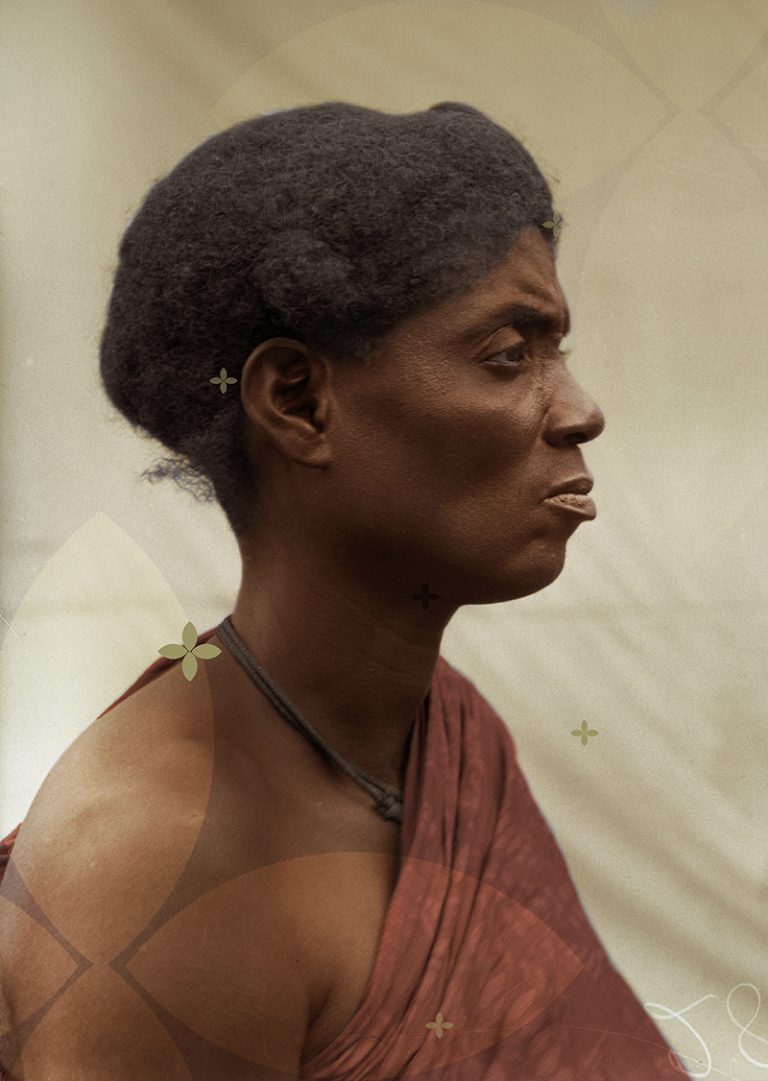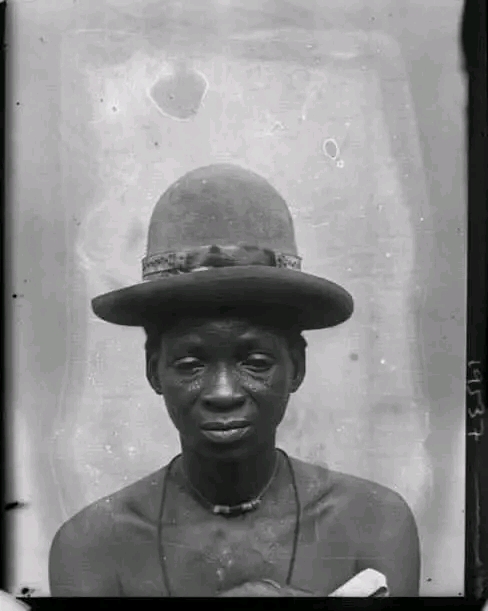
This photograph, taken by Northcote Thomas around 1912-13, depicts an elder of Obomkpa, a prominent community in present-day Delta State, Nigeria. The elder’s attire and demeanor offer insights into the traditions and social structures of the time, reflecting the deep cultural heritage of the people.
Obomkpa, part of the Ezechima clan, operates a monarchical system led by the Obi (paramount ruler). The community is renowned for its rich traditions, including festivals such as the Egwu Afa and Idu-Olu, which celebrate transformation and unity. Farming and trading have long been the dominant occupations, with staples like yams and cassava forming the basis of their diet. Historically, their architectural styles and village organization echo their connections to the Benin Kingdom, transitioning over time from communal mud houses to modern structures.
Traditional religious beliefs have largely given way to Christianity, although elements of ancestral worship persist. Notably, dances like Egwamala and Atilogu showcase the community’s performance arts, with performers adorned in intricate costumes and beads.
Obomkpa’s enduring legacy as part of Delta Igbo history is vividly captured in this photograph, serving as a window into the lives and values of its people during the early 20th century.
Explore Further
For a deeper exploration of Northcote Thomas’s work and its implications, read our post below on “Northcote Thomas: A Complex Legacy for Igbo Anthropology.”
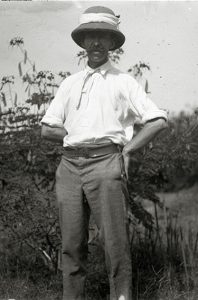
Northcote Whitridge Thomas, an anthropologist appointed by the British government, embarked on a series of ethnographic expeditions in Nigeria from 1909 to 1915. His work, particularly among the Igbo people, left a lasting impact on the study of African cultures. However, his legacy is intertwined with both significant contributions and considerable controversies. Northcote Thomas’s Contributions […]
